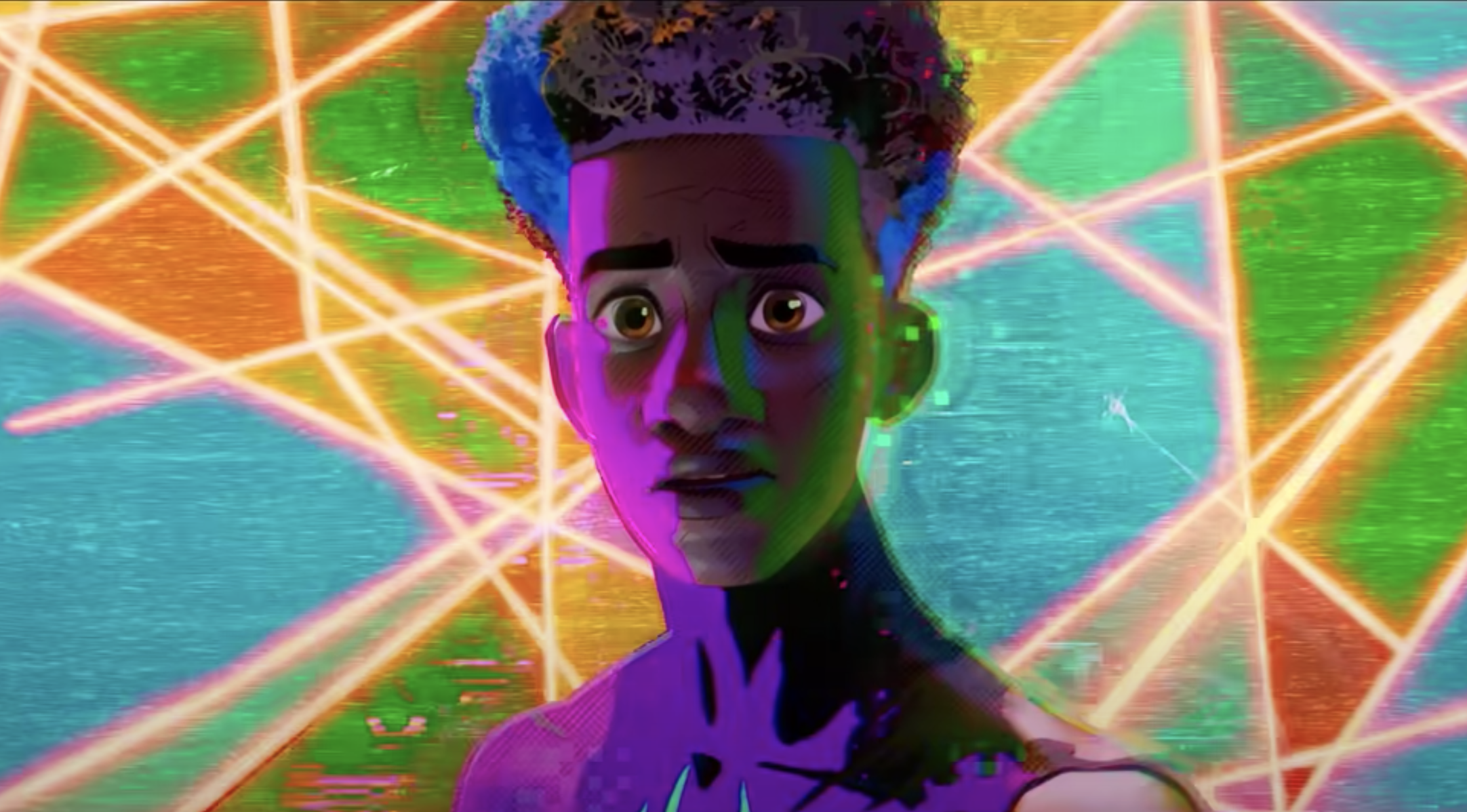A whole TikTok trend emerged out of the way “Spider-Man: Across the Spider-Verse” understands itself in relation to other entries in the franchise. The movie goes out of its way to problematize Canon Events: things, mostly bad things, that are supposed to happen to Spider-man, no matter who is behind the web-slinger’s mask. But the Sony animated film wasn’t always set up to go for as obvious a metaphor for the standard to which fans hold comic book adaptations.
“We didn’t call it ‘canon’ for years,” co-director Kemp Powers told IndieWire on the Filmmaker Toolkit podcast. “We had all these different names for it. We were calling it ‘convergence events.’ We had all these different names and we were just like, ‘These names all sound dumb.’”
The quest for a better-sounding name for the rules of being a spider-person actually led the filmmakers to structural tweaks that make the movie about the experience of reading comics while utilizing the tools and conventions of comic book illustration. It was Christopher Miller who finally proposed putting a conventional comics term to the web of events (pun intended) every version of Spider-Man has in common.
“It turned into just calling it what it was, which is the idea [that] comic books can [become] a slave to these rules — rules that the people who created them did not think you had to draw within the lines just like that,” Powers said. “It’s one of the weird things about comic books becoming such fodder for film and television, is that a fan base that used to be niche suddenly became the vocal experts on some of the biggest entertainment in the world.”
That expertise, at its best, leads to a lot of the high-concept weirdness of comic heroes surviving the Hollywood filter to create thrillingly original, resonant underdog stories. What is the Spider-Society, after all, if not both a hilarious and cutting metaphor for the Princeton STEM program Miles wants to be accepted into, a place where he meets his people and sees the potential for belonging while also overseen by a literal (multi-dimensional) gatekeeper in Miguel O’Hara.
But at its worst? “There’s a feeling of ownership: ‘Look, I’ve been reading comic books since this long and so, trust me, you can’t do this. You can’t do that,’” Powers said. “But comics and films are two different mediums and I think that, when you’re thinking about the idea of canon, it’s been something that I’ve dealt with in my professional career a lot when I’ve worked as a writer.”

Powers said that he, like anyone who’s worked on established IP, has had pitches shut down because they clash with the established canon or go in a different direction from the original property. “It always grated on me because in many cases I would be one or two degrees removed from the person who created it and then people would tell me, ‘Oh yeah, when so-and-so made that up, he was high as a kite.’ In many cases, you’re dealing with stuff that is [treated as] sacrosanct, but the person who created it pulled it out of their ass.”
It’s not that pulling things out of thin air, among other places, is always a disqualifier for good art or entertainment. “Across the Spider-Verse” hums with additive moments of inspiration and a collage-like sense of inclusion, with a notable Lego sequence added last minute after the film’s creators saw a 14-year-old animator’s Lego take on the film’s trailer. But it is the dogmatic adherence to character arcs and their repetition across different versions of Spider-Films that Powers was excited to tackle head-on.
“It was why I was excited to come on board with [the film] because that’s a heady, meta idea that was just chomping at the bit to dig into. If the sequel had been about, ‘Let’s just do what we did in the first “Spider-Verse,” but bigger, that wouldn’t have been very interesting to me,” the “Across the Spider-Verse” co-director said.
The film tackles head-on the problem of adhering too rigidly to Canon Events™ but also offers the possibility that Miles could be more than the tragedies and the nemeses that define his superhero persona. He wasn’t even supposed to be Spider-man; “Across the Spider-Verse” contends that it is exactly the person without a legacy to uphold who can redefine a role for everyone else.
“I loved how different this was. [And] of course, it makes the story exist on different levels philosophically. It gives multiple meanings, multiple layers, to that part of the story. Just as a storyteller, that’s something that really excites me,” Powers said.
“Spider-Man: Across the Spider-Verse” is now streaming on Netflix.







